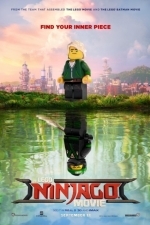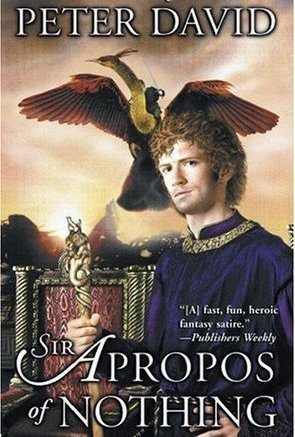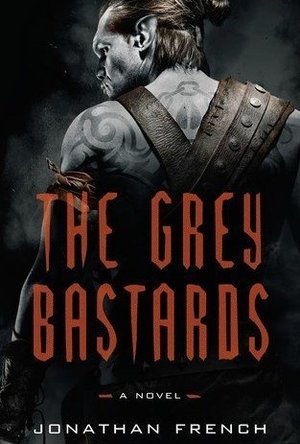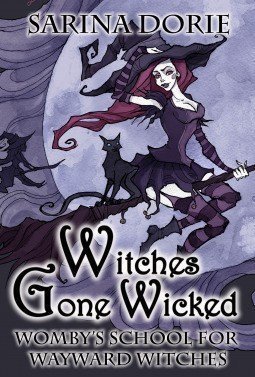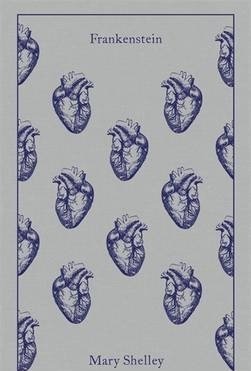
50 Beaches to Blow Your Mind
Lonely Planet and Ben Handicott
Book
From the people who have been delivering trustworthy guidebooks to every destination in the world...

From the Source - Japan
Book
Lonely Planet presents Japan's most authentic dishes - direct from the kitchens where they were...
Gareth von Kallenbach (980 KP) rated The LEGO Ninjango Movie (2017) in Movies
Jul 11, 2019
The film is rated PG and is about 90 minutes.
The story follows the main character Lloyd and his troubled (almost nonexistent) relationship with his father, Garmadon. We begin the movie believing Lloyd has no friends, but quickly discover he DOES have a small handful of friends, and that he, as well as his friends Kai, Cole, Nya and Zane are all leading a secret life as Ninjas. The rest of the kids at school all dislike Lloyd because his father Garmadon is forever attacking the city and destroying everything.
As we see Garmadon repeatedly try to conquer Ninjago city, we see that the Ninjas, along with their “Mech”, and the help of Master Wu, keep beating him back.
Frustrated that his father won’t acknowledge his pain at being abandoned, Lloyd defies Master Wu and attacks Garmadon with ‘the ultimate weapon’.
The Ultimate Weapon ends up doing more harm than good and destroys a large portion of Ninjago city, leaving Garnadon in control of Ninjago city. Master Wu instructs Lloyd and his fellow Ninjas to find their inner strength and ‘the missing piece’ in order to defeat Garmadon.
The Ninjagos then start off on a journey to find what Master Wu has instructed. During one important scene, we discover that Gamadon is Master Wu’s brother!
Apparently, this movie is a spin off of a popular kids TV series, but I was unaware of that. My son does have some Lego Ninjago books and Lego sets, so I knew they existed, but not to what extent.
I was not a fan of the breaks in the middle of the movie to ‘non animated’ pieces, they seemed cheesy to me, and ‘comic-book-ish’. I found them annoying. I did like the tie in at the beginning and end however, of the live action sequences. I felt it tied the story together.
I thought the Ninjago Lego movie was pretty decent, I liked it somewhat better than the Lego Batman Movie. I did find the hot / cold attitude of the Garmadon character a bit hard to follow, but the existence of that same attitude did give that character some of the best lines of the movie.
The PG rating was fair and at no point did I feel uncomfortable having my 9 year old there to see it, and he loved the movie. He said his favorite part was “the action packed fight scene between the brothers in the woods.”
The 9 year old gives the movie 4 out of 5 stars, and

ContactsXL 2017
Productivity
App
ContactsXL allows you to manage your contacts and create groups; Backup your contacts; Quickly send...
Sophia (Bookwyrming Thoughts) (530 KP) rated Dualed (Dualed, #1) in Books
Jan 23, 2020
For some weird reason, I liked the idea. Come on, <b>thirty days to kill your supposedly "evil" twin before both of you self-detonate? Totally up my alley.</b>
That, however, does not mean I'm secretly a serial killer with a freakishly high IQ and gets a high off from killing people. (However, Lupe is still worried about my future regardless of my feeble protests. I think she's really just worried about the romance department, but I'm not exactly a mind reader despite our six-plus years of friendship.)
Anyways, I'm getting off-topic. <i>Dualed</i> is about assassin twins (I take no credit). In a bit of a contradiction to Faye, who summed this up perfectly, I'll say <i>Dualed</i> stalls. It's either the book stalling or West Grayer is a procrastinator. She's been training for years to kill her Alt (which I suppose are like "evil" twins, but Alts aren't necessarily "evil"), but then she finally gets her assignment.
As expected, it probably feels like a bulldozer has just plowed into you – I know I would be panicking all over the place. I totally understand why <b>West feels like she doesn't have enough training and decides to do something entirely illegal in The Board's eyes – killing someone else's Alt, otherwise known as a striker.</b> (Though in my case I'll probably turn into Hermione. Dye my hair blonde and make it curly than wavy. Claim I'm a Gryffindor and best friends with Harry Potter. Plan religiously and then go after my Alt with my wand crossed with my finger.)
I just felt that West waited until almost the last minute (read: the last couple of days) to go after her Alt. <b>She's going after everyone else's Alt as a striker while her days are counting down down down and when her friend Chord confronts her about it, she just makes an excuse.</b> It's one of those excuses you come up with lamely just to come up with one and when the "interrogator" fires back, you just end up speechless.
(Really it's just screaming "Lies lies lies so let me come up with an excuse in the hopes I won't be questioned further" all over.)
But the book just doesn't feel like it stalls. In fact, it doesn't stall. <b><i>Dualed</i> is very fast-paced, action-packed, and when West 1.0 (the main) meets West 2.0 (the Alt), it'll leave your heart pounding as the two go neck to neck for the chance to survive.</b> (The dark and evil side of me goes: Yeah! Blood and gore! *plays upbeat action music*) In comparison to a lot of dystopians out there, this is actually <b>a refreshingly new idea that'll attract bees to the honey.</b>
(I totally said that. Did it sound weird? My bad.)
So <b>here's my ultimatum: West Grayer is a procrastinator.</b> At the exact same time she starts questioning The Board while taking on striker duties and running away from her Alt. She finally realizes (or maybe Chord just verbally slaps her upside the head and it came through AT LAST) if she wants to live happily ever after as The Board says, she'll have to take the initiative and pounce before her Alt does it to her.
Overall, <i>Dualed</i> wasn't bad to listen to. Alicyn Packard definitely isn't my type of narrator, but I won't complain. I've finally figured out my favorite types of narrators are usually those who do a variety of different voices (one day I'm going to come across a cast and it'll be <span style="text-decoration: line-through;">MIND</span> EAR BLOWING). I give up on commenting on the narration of audiobooks unless it's really good or really bad.
<a href="https://bookwyrmingthoughts.com/audiobook-review-dualed-by-elsie-chapman/"; target="_blank">This review was originally posted on Bookwyrming Thoughts</a>

FishTales - A Fishing Log Book and Journal
Lifestyle and Sports
App
**** Named favorite fishing journal app for iPhone by iMore.com - March 11, 2014 **** FishTales is...
Mandy and G.D. Burkhead (26 KP) rated Sir Apropos of Nothing in Books
May 20, 2018
So when I picked up Sir Apropos of Nothing, I did so based on the title pun and the back-of-the-book synopsis that promised “a berserk phoenix, murderous unicorns, mutated harpies, homicidal warrior kings, and – most problematic of all – a princess who may or may not be a psychotic arsonist.” I expected another lighthearted riff on the familiar archetypes. Murderous unicorns? Unicorns are not typically described as such! Oh teehee, how unexpectedly humorous!
Sir Apropos of Nothing is a satirical fantasy, just like it promised, though at times it’s hard to tell how much of the story is played for laughs and how much is played straight. See, the thing about satire that’s easy to forget at times is that it’s not synonymous with buffoonery. Make no mistake – Apropos is a funny book, full of witty dialogue and groan-inducing puns. It’s a book that takes great delight in lampshading traditional fantasy tropes and archetypes, as well as the entirety of Joseph Campbell’s Hero’s Journey idea. But it is not always a silly lampshade; sometimes a cliche or trope is pointed out to have its inherit ridiculousness laughed at, and sometimes it is pointed out because it is causing real and lasting pain or damage, either to the society in which it is set or, more often, to the titular Apropos himself and his ever-degrading esteem of both the people around him and himself.
The tone, at first, is hard to pin down. The story starts in media res with the main character being caught by a knight while in mid-coitus with that knight’s wife and escalates from there. The second chapter opens with a fourth wall-breaking narrative admission by Apropos himself that this was done with the express purpose of catching your attention, and now we’re going back to cover Apropos’s childhood, which ends up being equal parts dark, tragic, punny, and conveniently trope-filled – all of which Apropos, as narrator, approaches with the same resigned, blasé outlook.
If this sounds a bit jarring, well, it kind of is. Early on, I wasn’t sure what to think of where the story was trying to go or what I was expected to feel about it. After the first turn from cliché to dark and visceral to light and punny, all within a few pages, I caught myself thinking, “Crap, is this book gonna try and mix goofy jokes with serious drama and thoughtful moral quandary?”
The answer is yes. And it pulls it off fantastically.
This is due in large part to the interesting depths of the antihero, Apropos, who seems to be so named purely for the joke in the title. In Apropos we see a deep sense of justice and rightness that is entirely eclipsed by an even deeper cynicism and an unshakeable instinct for self-preservation. His life is objectively terrible, but rather than brood and lament, he adjusts. He keeps his head down when he can, weathers abuse when he can’t, and learns to deal with the constant shit storm, all the while bottling his growing anger and resentment at a world that would allow such amounts of suffering and hypocrisy to go unchecked. The fact that he himself becomes a selfish, hypocritical, and generally awful person is not lost on him, and the result is a flawed, unheroic, pathetic coward of a protagonist, a magnificently multifaceted bastard who doesn’t spare even himself from his vast and withering contempt.
And it’s a blast. It really is. Apropos is refreshingly pragmatic and unabashedly pessimistic, a welcome change from the typical righteous-yet-humble heroes of traditional fantasy, or even the loveable and untalented everyman in over his head of traditional fantasy spoofs. Despite a portentous birthmark (on his ass, no less) and beginnings that are not “humble” so much as “poverty of the dirtiest kind,” Apropos is everything a hero should not be short of outright evil.
And this, as it turns out, is entirely the point. This is where the satire, funny or otherwise, really shines through. This is the crux that elevates Sir Apropos of Nothing from a generically self-aware fantasy story to an original and memorable subversion of storytelling as a whole.
Without giving too much away, there comes a point in the plot where Apropos realizes that the events surrounding his miserable life are part of a heroic tale that has been preordained by Fate and is now being epically written out by Destiny. And despite his birthmark, his tragic past, and his mother’s constant reassurances that he has some sort of great destiny hovering over him, he is not the hero. He is only a minor character. A walk-on role on the hero’s stage. A brief pit-stop along the hero’s journey. An NPC whose dreams, desires, and continued existence are so far below importance to the story as to be utterly negligible.
And once this finally clicks with him, he violently, brazenly rebels against it. He gives an emphatic middle finger to Fate’s ideas and sets about making Destiny sit up and take notice of him again. He momentarily and violently overcomes his own abject cowardice just long enough to find a way to completely wreck the traditional heroic ballad in which he lives, all on the basis that, dammit, the world owes him more than this, and nobody should be so miserably cursed as to live their entire life as a foil character.
At this point in my own reading, I didn’t know whether to cheer him on or worry about the repercussions of his actions, because he doesn’t suddenly become heroic when this happens. He’s exactly as much of a selfish, lying bastard as before, and however bad you feel for him, you can completely understand why he was never cast for this role in the first place. Add to this the complete disregard of the author for following what seems to be the obvious progression of events in favor of twists that take you completely by surprise, but still make complete sense and arise organically from the story itself, and you eventually give up thinking that you have any sense of where the story’s going or how any event is going to play out. From beginning to end, it feeds you familiar ideas and then completely subverts them, introduces clichés and then proceeds to tear them apart, and you laugh and pity and feel something the entire way through.
In short, Sir Apropos of Nothing is a book that will keep you turning page after page – not necessarily because of the gripping drama (although it has that) or because of any breezy humor (although it has that too), or because the narration itself oozes suspense (although it often does), but because, with the rapid infusion of new and creative ideas and the hidden depths of character constantly bubbling to the surface in everyone involved, you honestly never know what’s going to happen next. If you like fantasy and can stand to have your expectations messed with, Apropos is certainly apropos.
Mandy and G.D. Burkhead (26 KP) rated The Grey Bastards in Books
May 20, 2018
But don’t be fooled into thinking this book will be any less intelligent, epic, or heartfelt for it. The Grey Bastards is all of that and more. The novel follows Jackal, a half-breed orc living in the Lot Lands, the barren desert wasteland of Hispartha. He is a Grey Bastard, one of many half-orc hoofs, each protecting its own small town in the Lots. Members of a hoof are elite warriors that ride out on their Barbarians—giant warthogs—and slaughter invading bands of orcs.
Hispartha is a vibrant world, with a mix of fantastical species (orcs, half-orcs, elves, humans, halflings, and centaurs) with unique cultures and religions. Hispartha itself takes influences from Reconquista Spain, which is especially noticeable in the nomenclature, geography, and architecture.
The primarily atheistic half-orcs recently won their freedom from slavery at the hands of humans. Humans treat the half-orcs like second-class citizens, but tolerate them because of their strength, using them as a shield from the orcs. The elves are beautiful, reclusive, and probably the most cliché; there is one important elf character, but for the most part, we don’t get a good look into their culture in the first book. The centaurs worship Romanesque deities and go on crazed, Bacchanalian killing sprees during the blood moon.
Besides the half-orcs, the halflings are perhaps the most interesting. I still have a hard time visualizing them, trying to figure out if they are thin, pixie-like creatures or more stocky like dwarves. Their small stature and black skin makes me think of pygmies. They worship a god they expect will reincarnate someday, (view spoiler)
One thing that has always annoyed me about fantasy is that many authors feel that the characters of their world, being pre-industrial and thus “medieval,” must all be white, straight, Christian (or proto-Christian), cisgender males. If a woman appears at all is to act as the damsel, prize, or, if she’s lucky, a mystical enchantress to guide the heroes or provide a maguffin. It has come to the point in which this has become a tired and accepted baseline for fantasy. I don’t necessarily think that these fantasy authors are intentionally trying to be uninclusive, so much as they just seem to forget that other groups of people can exist in fantasy thanks to its fathers, Tolkien and Lewis.
But enough with my rant, the purpose of which is to highlight why I am often drawn to grimdark fantasy: at the very least I know that women, people of color, lgbt people, and other religions will be present, even if they are often victimized. This is because grimdark fantasy honestly depicts the horrors of rape, war, murder, slavery, and racism (or rather, speciesism in most cases) and has heroes and villains that are morally grey.
However, many authors describe these atrocities and then leave it at that, assuming that simply depicting them is enough to make a book mature and meaningful. They often fail to make any sort of statement on evil, and thus can seem to be, at best, blindly accepting it and, at worst, glorifying it (this often happens in the cases of magnificent bastard characters, who are absolute monsters but are so charming you almost respect or like them).
Jonathan French, however, does not fall short of the mark as many authors do, and for two main reasons: humor and humanity.
Let’s start with the humor. This book is hilarious. I mean in the I literally laughed out loud while reading it way. Sure, the jokes are often crass, but I have a dirty mind, so inappropriate humor is my favorite kind. The dialogue is especially top-notch, and the interactions between Jackal and his friends Fetching and Oats feel genuine, full of in-jokes, insults, and sexually-charged humor, all of which are exactly how I interact with my own close friends. And every major character in this book is so damn witty that I’m honestly jealous of them. If I could be quick enough to make even one of their zingers at the right time in a conversation, I would feel proud of myself for the rest of the day.
Humor is necessary to prevent any grimdark fantasy from becoming too over-the-top or depressing. And honestly, humor is needed most when the world is a dark and frightening place. But too much humor could accidentally downplay the point of grimdark: the brutally honest depiction of the atrocities that people are capable of.
And this is where it is important to have an element of humanity. By this I mean that the “good guys” must make some action or statement on those atrocities. Too often I read or watch hardened badass characters with no emotion who can watch a person get tortured and killed without flinching (maybe even do it themselves) and who never stop to question the nature of their society (even as part of their character growth), and I have difficulty finding them at all relatable or even the least bit interesting.
Now, often for this type of character, he or she is dead inside as a coping mechanism and part of their character arc is learning to allow themselves to feel their repressed emotions: heartbreak, anger, fear, etc. This can be done very well (see The Hunger Games for a great example—dystopian scifi and grimdark fantasy have very similar undertones). But most times it just ends up falling flat.
But Jackal already starts out with more personality than most grimdark protagonists. He is a humorous and light-hearted person. Sure, he lives in a desert wasteland, his race is entirely created by rape, he’s treated as a second-class citizen, and his life and the lives of those around him are in constant danger of rape and/or murder by invading orcs or blood-crazed centaurs. But despite all of that, he still has a sense of humor, people he loves, a community, ambitions, moral code, and all of the other things that these protagonists are often lacking.
Don’t get me wrong, he can be an asshole, and he’s often acts rashly before he thinks. But the scene that really stuck with me the most was [when Jackal and the wizard Crafty come across an unconscious elf sex-slave. I was expecting him to say something along the lines of “There’s nothing we can do for her, we have to save ourselves” or “This isn’t any of our business” or “It would be best to just put her out of her mercy.” These are the typical lines that a grimdark protagonist might utter while their companion—accused of being a bleeding heart—frees the slave. But this was not the case. Jackal and Crafty both immediately set out to free the girl and steal her away from her owner, despite the danger to themselves. And when he comes across an entire castle-full of these women, Jackal again sets about freeing them without a moment’s hesitation. (hide spoiler)]
And it’s no surprise that Jackal has a serious problem with rape. As I’ve mentioned before, half-orcs are entirely the product of roving bands of orcs raping human, elven, or even half-orc women. [When Jackal learns that Starling, the elf slave he rescued, is pregnant with a half-orc baby, he is not only furious with the orcs that gang-raped her, but also disturbed by the fact that elven society shuns any of their women who have been raped, and that these victims often end up taking their own lives rather than give birth to an impure half-elf. (hide spoiler)]
Furthermore, Jackal, unlike many people in Hispartha, does not buy into misogyny or sexism. His best friend Fetching is the first female half-orc to have joined a group of riders. Not only does Jackal respect Fetching, he understands the emotional turmoil that she is dealing with being the first female rider and how she overcompensates as a result to earn the respect of the other men.
While there is quite a bit of speciesism (pretty much none of the species get along with one another), the inhabitants of Hispartha come in every skin color and nobody gives a damn. Furthermore, sexuality is primarily treated as each person’s individual preference and nobody else’s business. While characters may make jokes about acting “backy” (gay), these are made in good humor between friends, and nobody gets particularly offended by them. Fetching is herself openly bisexual (though she seems to suppress her heterosexual desires more than her homosexual ones out of that same need to be “one of the boys”), and Oats and Jackal are one of my favorite bromantic pairings.
Grimdark fantasy can often be depressing to read. But Jonathan French does an excellent job of infusing hope into his narrative. The story actually has a happier ending than I was expecting. [I was especially pleased when Jackal chooses Fetching to be the new leader of the hoof (she is voted in unanimously by the other riders). I find it incredibly annoying in books and movies when revolutionaries/usurpers decide to appoint themselves leaders, as the former does not qualify you for the latter. Part of Jackal’s arc is realizing that he is not meant to lead the hoof like he’d once desired. (hide spoiler)]
For the sequel, The True Bastards, I’m hoping to see [if a cure can be found for the thrice-blood child now infected with plague, how Fetching is doing leading the hoof, and what the mysterious Starling is up to (I don’t buy for a second that she’s killed herself). And of course, I fully expect that Jackal is going to have to fulfill his empty promise to the halfling’s resurrected god, Belico.
Kara Skinner (332 KP) rated Witches Gone Wicked in Books
Jun 11, 2019
But it’s not that simple when she’s all but banned from using her volatile magic, her mother was apparently an evil dictator, and her high school sweetheart was swept away in a tornado. Oh, and she caused the tornado.
But, now that she’s a teacher at Womby’s School for Wayward Witches, she might have a chance to actually become part of the Witchkin community and achieve her goals.
Despite everyone despising her because of her mother, she’s making new friends like Josie, a video-gaming witch who loves all life, and Khaba, a Djinn with a kilt fetish. She’s also getting attention from the very sexy Julien Thistledown.
If only that jerk Felix Thatch would stop patronizing her and let her learn about her mother.
Witches Gone Wicked is essentially Harry Potter fanfiction,which had me skeptical at first, but it was really entertaining at the same time.
Womby’s is the Title I version of Hogwarts. It’s for witchkin too poor to afford other schools as well as ones who were kicked out of other schools. Clarissa, being an art teacher, feels the strain of this with an annual budget of $20. The previous art teacher apparently had the students make mud pie art because of lack of supplies. I really liked the idea of a Title I Hogwarts and found the entire school and the staff really interesting.
Josie and Khaba are really funny and entertaining. Khaba is a bit of a stereotype, but I didn’t mind it that much. Josie was fantastic. Gotta love someone who loves all life and has the guts to treat spiders like puppies.
My favorite character is perhaps Felix Thatch. He’s very sexy and funny and I love almost every scene including him. He’s definitely not a people person by any stretch, but he has a lot of integrity as a teacher and a person that Clarissa just refuses to see.
Clarissa is actually one of my least favorite characters. Her dislike and suspicion of Thatch is near identical to Harry Potter’s dislike of Snape. The only problem is she’s a full-grown woman!
Clarissa has a tendency to blindly trust everyone nice to her, not thinking for a second that anyone has ulterior motives. And she despises Thatch for being brutally honest with her despite proving time and time again that he has integrity as a person and a teacher.
Felix Thatch does the following:
Trains Clarissa to use her magic (granted, the principal ordered him to)
Emphasizes the importance of people wanting to take advantage of her
Makes students write apology letters to her
Lets one of his students read in his classroom during lunchtime
Expresses concern over said student’s habit of hugging male teachers because someone might try to take advantage of her friendly nature.
Meanwhile, Clarissa thinks Thatch:
is secretly trying to kill her
might be trying to enslave her using sex magic
condones student and teacher relationships
It’s completely insane! Hey, who’s the most likely to take advantage of you? Maybe not the guy who keeps warning you about people taking advantage of you.
Clarissa is sometimes funny and relatable. I like how much she cares about her students and her patience with the troublemakers in her class. That’s actually really admirable.
But half the time she’s juvenile and irrational and I just want to shake some sense into her.
She’s the daughter of a powerful witch who apparently terrorized the Witchkin community with evil and forbidden magic. Clarissa never knew her birth mother personally, but she’s treated with suspicion and fear because her mother killed and ruined the lives of basically everyone.
Because of her lineage and her volatile magic, Clarissa is under constant threat of being fired from Womby’s, drained of her magic, and turned into a Morty (Muggle).
So you think she would be really careful, right?
Lol no.
Clarissa goes around saying she wants to be the most powerful witch ever, uses magic when she’s not supposed to, and makes plans to break into the library’s restricted section. It’s a freaking miracle that she didn’t get drained and turned into a Morty.
Here’s another thing: why doesn’t she want to be drained? I really don’t get it. Because of her magic and her mother:
everyone hates her
her sister died
her high school sweetheart blew away in a tornado
Womby’s almost burned down
anyone can turn her into a sex slave
As far as I can tell, there are very few benefits to her having magic and a staggering amount of drawbacks. Call me a defeatist, but if I was Clarissa I would be begging to be drained. Her conviction that magic is her true identity isn’t good enough for me.
All in all, this book is definitely three out of five stars. I enjoyed the worldbuilding and really like Thatch. Some of the magic concepts are surprisingly sexy, which I definitely enjoyed. I just don’t like Clarissa.
Hadley (567 KP) rated Frankenstein in Books
Apr 30, 2019
Not just horror readers will enjoy 'Frankenstein,' but also those who like to read philosophy. Shelley brings up life discerning questions that even society meddles with today. It's amazing to think that a two century old book discusses problems we still deal with.
The book begins with a sea captain that picks up a stranger that was stranded on a raft of ice, and this man has a fascinating story to tell. The entire book is a letter written by the sea captain to his sister, which he details every bit of Victor Frankenstein's several year tale. Readers get to follow Frankenstein's life from the moment his 'creature' is made to the end of his days, which traverses the globe. When Shelley begins to lull over her love of environments, she quickly picks up with character or story development that keeps our attention from wandering.
'Frankenstein' focuses on the need to be loved and accepted to live a happy existence,as well as reaching our dreams, but Shelley shows how achieving such things can cause a crushing defeat in the latter pursuit: "Night was far advanced when I came to the halfway resting-place, and seated myself beside the fountain. The stars shone at intervals, as the clouds passed from over them; the dark pines rose before me, and every here and there a broken tree lay on the ground: it was a scene of wonderful solemnity, and stirred strange thoughts within me. I wept bitterly; and clasping my hands in agony, I exclaimed, 'Oh! stars, and clouds, and winds, ye are all about to mock me: if ye really pity me, crush sensation and memory; let me become as nought; but if not, depart, depart, and leave me in darkness.' "
There are other characters we read of, including Frankenstein's best friend, Henry, and his long time love interest, Elizabeth (both of who grew up with Frankenstein). Henry comes from a well-to-do merchant family, while Elizabeth was orphaned from a wealthy family, then adopted by the Frankensteins as a future wife for Victor. Unfortunately, we learn little about them or Victor's family, that when any of them do die, it's not felt personally by the reader. There are other characters that had major events in the story, but as with the friends, they weren't developed enough to bring up any emotion at their passing.
After Frankenstein sets out after his creation,we meet the 'creature' at the top of a mountain. He is devastated that his creator hates him, and that the other humans he has met also hated him. "I expected this reception,' said the demon. 'All men hate the wretched; how, then, must I be hated, who am miserable beyond all living things! Yet you, my creator, detest and spurn me, thy creature, to whom thou art bound by ties only dissoluble by the annihilation of one of us. You purpose to kill me. How dare you sport thus with life? Do your duty towards me, and I will do mine towards you and the rest of mankind. If you will comply with my conditions, I will leave them and you at peace; but if you refuse, I will glut the maw of death, until it be satiated with the blood of your remaining friends.' "
The 'creature' gives Frankenstein an ultimatum: he either makes him a female companion or he will kill everyone Frankenstein loves and adores." 'What I ask of you is reasonable and moderate; I demand a creature of another sex, but as hideous as myself; the gratification is small, but it is all that I can receive,and it shall content me.' " Although, by this time, the 'creature' has already murdered Frankenstein's youngest brother, Victor agrees to make him a companion, but with serious regret soon after.
The majority of the story concerns Frankenstein trying fool-hardly to protect all those he loves while the 'creature' murders them one by one. The most surprising of the murders is Henry's. After Frankenstein changes his mind on making another creation, the 'creature' quickly finds Henry and kills him, but Frankenstein is accused of the murder and spends quite some time in prison for it. "But I was doomed to live; and, in two months, found myself as awaking from a dream, in a prison, stretched on a wretched bed, surrounded by gaolers, turnkeys, bolts, and all the miserable apparatus of a dungeon. "
Frankenstein is eventually released from prison when the evidence doesn't add up, and witnesses come forward, claiming to have seen Victor elsewhere at the time of the murder. Frankenstein is, at this time, in a drowning melancholy and madness, but this doesn't stop him from marrying Elizabeth. The 'creature' foretold Frankenstein that he would be with him on his wedding night, and Victor uses this to his advantage - arming himself with pistols and knives on the honeymoon. Yet, to no avail, Frankenstein is unable to outlive or outsmart the 'creature' at any turn.
'Frankenstein' is a must-read for all readers. Although many horror stories today pertain to a creature killing it's master, none of them can reach the grief stricken peaks as Shelley has. Every passage in this book reads like poetry. Every interaction between Frankenstein and his 'creature' is fascinating to the reader. And, before Frankenstein dies, he leaves the sea captain with words of wisdom that even readers could benefit from: "Seek happiness in tranquillity and avoid ambition, even if it be only the apparently innocent one of distinguishing yourself in science and discoveries."
Highly recommend!
